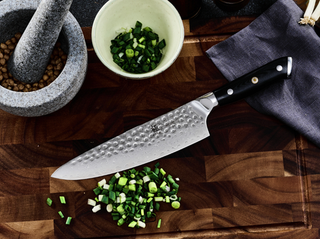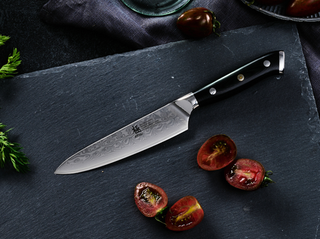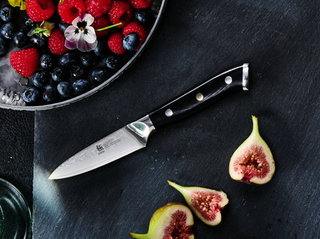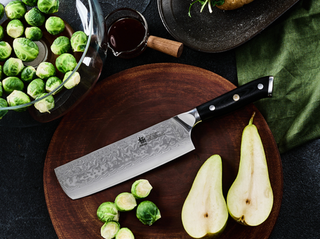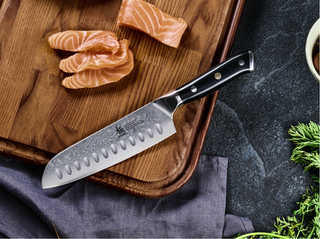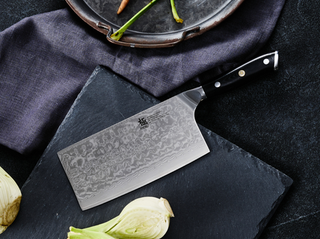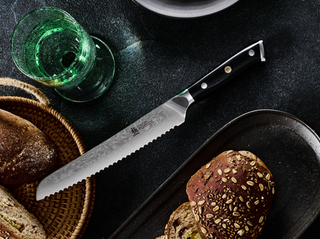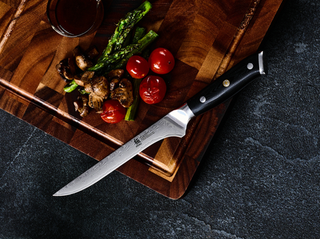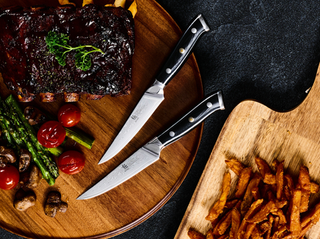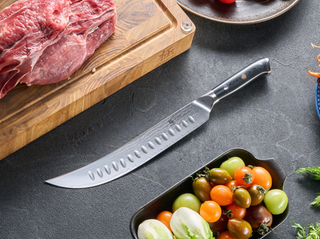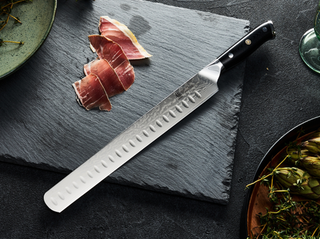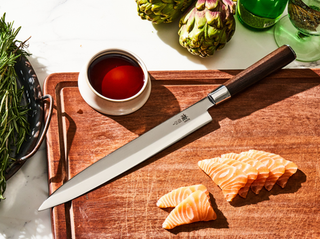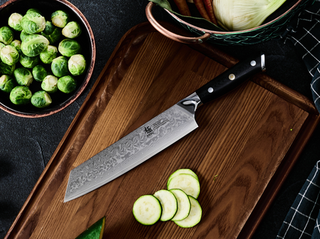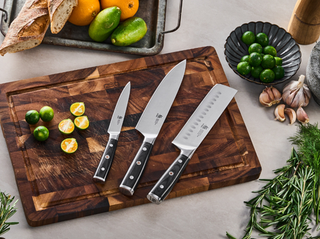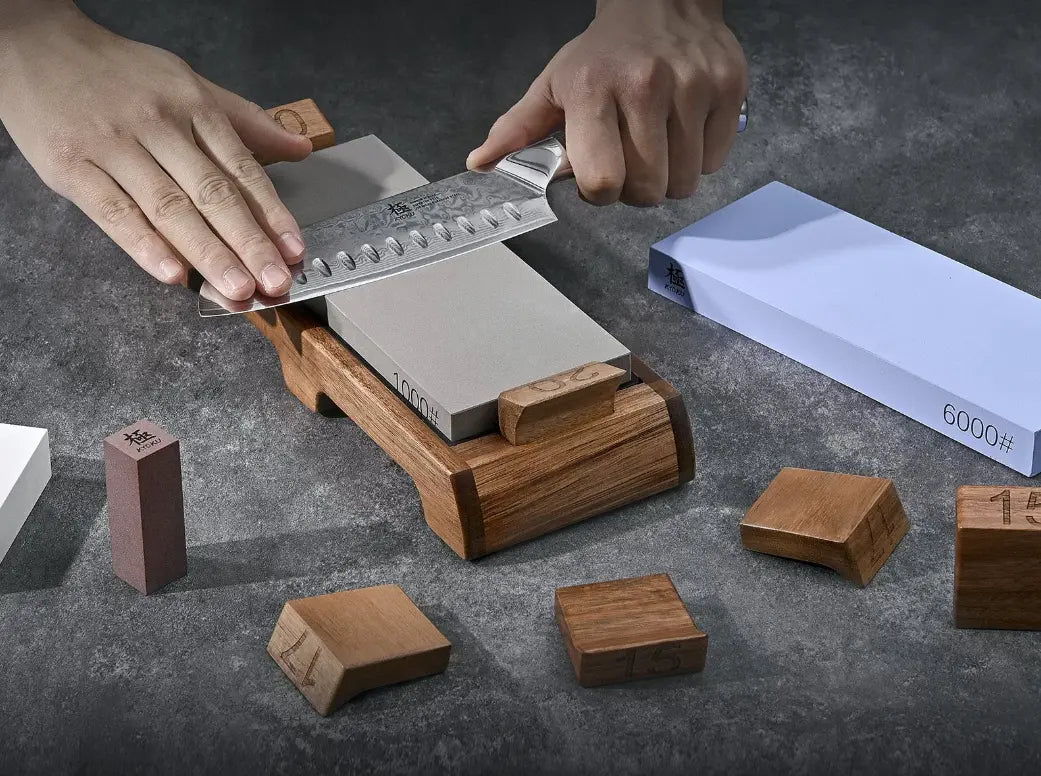Have your knives started to let you down? Then buy Damascus steel knives. We know your first question will be what are Damascus steel knives? Well, these knives steal the show with their immaculate precision and record-breaking sharpness. It attracts individuals, through its flawless cutting, while delivering outclass perfection. However, Damascus steel knives can still lose their shine. How? It often happens, when people fail to take proper care and that affects the overall cutting while preparing different kinds of meals.
Are you interested in knowing how to care for Damascus Steel Knives and learning where to buy Damascus Steel Knives from? Sounds great! This blog will serve the purpose of informing you of five ways to care for your Damascus steel knives and which vendor is the best in this case.
Five Ways To Take Care For Your Damascus Steel Knives
We are guessing you are excited to read the five ways to take care of your Damascus Steel Knives. They are as follows:
1. Handwash The Knife
The care for Damascus Steel Knives begins with handwashing the knife. You can clean through the following ways:
Keep Away From Dishwashers
Some dishwashers come ahead with high temperatures that can adversely affect the finishing of the blade. Plus, there are harsh cleaning detergents too that might compromise the sharpness of the edge. Hence, it is advised to keep the Damascus Steel Knives away from detergents and cleaning solutions.
Soapy Water
Clean your Damascus steel knives with soapy water that is warm and any cloth that has a soft fabric.
Dry Straightaway
Don’t keep on holding the wet knife in your hands. Dry it straightaway with a soft cloth or else it will catch rust and start to stain. And you will not like to witness such a precious tool in this condition.
2. Store Properly
You need to store the Damascus steel knives properly, which can be done using the following techniques:
Knife Sheath or Block

Put in some extra effort and purchase a knife sheath or block exclusively designed to store your Damascus steel knives. The sheath acts as a shield to protect the blade from getting damaged and preventing accidental cuts on your hands or fingers.
Store The Knife Separately
You have to store the knife separately so it avoids coming in contact with other knives. If you overlook this instruction, then be prepared to witness how the contact dulls the blade and also impacts the delicate patterns on the Damascus steel knives.
Place The Knife In A Dry Spot
Make sure to keep your knife in a dry spot, otherwise, in wet places, it will catch moisture and invite rust in no time. Therefore, change the area for your Damascus steel knives to prevent rust and increase the life span as well.
3. Regular Sharpening
Regular sharpening plays an important role in maintaining the sharpness of the blade. You can fulfill the purpose in the following ways:
Honing Steel

Grab a honing steel and make the most out of it to ensure the knife’s edge. Using the knife for cooking purposes might form microscopic burrs with time, hence honing steel removes them. In this way, the blade also does not become dull.
No Need To Do Extra Sharpening
Sharpening has to be done till a certain limit as going overboard with it reduces the thickness of the blade, fading the knife's beauty too. If your regular honing tool fails to deliver the required sharpening results, then go for a professional one and then see the difference.
4. Use and Handle The Knife Safely
Be safe while using the knife as you will not want to damage yourself and the knife too. You can follow the below-mentioned strategies:
Maintain A Little Distance While Cutting
While cutting anything, maintain a little distance from the Damascus steel knives. That will keep you safe from any potential injuries as you will not like to see your finger red with blood.
Use A Cutting Board

Do the cutting with the Damascus steel knives on a proper cutting board. Avoid using hard surfaces in your kitchen. Why? The surface might damage the blade’s edge, interrupting your other cutting needs.
Don’t Put Extra Pressure
Don’t consider the Damascus steel knives to be like your ordinary knives as these are extremely sharp, so there is no need to put extra pressure while cutting. Normal pressure is more than enough for the majority of the tasks. Hence, bear this in mind, otherwise the force may damage the blade too.
5. Professional Maintainance
A knife that takes full marks in precision and sharpness, deserves professional maintenance. This is how you will tackle this part:
Schedule Regular Inspections
Schedule regular inspections and by inspections, we mean to take time from your hectic routine and look carefully at your Damascus steel knife. This will help you spot any signs of damage as it can happen that you missed out on any symptoms of wear and tear.
Take Your Knife For Professional Sharpening

If your blade fails to deliver its terrific performance and has become damaged, hold on and take your knife to a professional knife smith. They can sharpen your favorite Damascus steel knives right in front of you. After that, your knife will cut the things in the way it used to do so.
Buy Damascus Steel Knives
Did the Damascus steel knives make you their fan too and now you are thinking from where can you buy Damascus steel knives? Your answer is Kyoku Knives. The website is a paradise for knife lovers and now can be for you too. The platform has a wide variety of Damascus steel knives. For instance, you can have a look at the 7" Cleaver Knives Damascus Steel Shogun Series, which offers supreme versatility and is best for cutting boneless meats, fish, and vegetables. Plus, its herringbone design prevents the food from sticking to the blade. Or the 8" Gyuto Chef Knives VG10 Damascus Steel that impresses you with its razor-sharp cutting so you won't face any issues while slicing, dicing, or chopping.
Conclusion
We hope you understand how to take care of the Damascus knives and now you are good to go with the cutting part.
